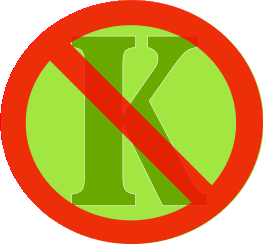LUNGS HEALTH REMEDIES

|
The lungs is called Prana Vaha Srotas / Avalambaka Kapha in Ayurveda. Categories in Respiratory HealthNose and SinusesPhlegmThroatLungsEarsOverviewDon't know your body type? Take our free Dosha quiz!
TAKE THE QUIZ
25 likes  SAVE SYMPTOM SAVE SYMPTOMMany people smoke without thinking, leading to addiction. As a first step to quitting, Ayurveda recommends smoking slowly and with full attention. 29 likes  SAVE SYMPTOM SAVE SYMPTOMMany people smoke without thinking, leading to addiction. As a first step to quitting, Ayurveda recommends smoking slowly and with full attention. 53 likes  SAVE SYMPTOM SAVE SYMPTOMEven though flowers release pollen all summer long, many people are more sensitive to pollen in the springtime. The body releases winter fats in the springtime, making the blood rich and sweet. When the blood is rich, any single grain of pollen... 35 likes  SAVE SYMPTOM SAVE SYMPTOMAllergies may be a consequence of chronic underlying inflammation (of the skin, lungs, or digestive tract) that exposes the immune system to allergens. For example, a respiratory infection can cause the immune system to overreact to dust or other... 28 likes  SAVE SYMPTOM SAVE SYMPTOMAllergies may be a consequence of chronic underlying inflammation (of the skin, lungs, or digestive tract) that exposes the immune system to allergens. For example, a respiratory infection can cause the immune system to overreact to dust or other... 41 likes  SAVE SYMPTOM SAVE SYMPTOMInflammation of Airways The lungs may be inflamed due to irritants including air pollution, allergies, infection and cigarette smoke. It can lead to asthma. Pleurisy - Inflammation of the lining of the... 34 likes  SAVE SYMPTOM SAVE SYMPTOMBronchitis is inflammation of the bronchial tubes, often due to infection, allergies, or exposure to other lung irritants such as smoking, or fumes. Bronchitis is considered chronic when a person has a productive cough for at least 3 months or 2... 25 likes  SAVE SYMPTOM SAVE SYMPTOMWheezing is the sound that happens when air in your lungs moves through constricted or obstructed air passages. Wheezing usually comes from the bronchioles - smaller tubes deeper in the lungs. Wheezing on the exhalation points to bronchiolar disease.... 53 likes  SAVE SYMPTOM SAVE SYMPTOMAsthma is chronic inflammation of the lungs characterized by easily triggered spasms of the bronchial tubes. These spasms, inflammation of bronchial tubes, and mucus induce wheezing, coughing, chest tightness, and shortness of breath. Asthma is... 4 likes  SAVE SYMPTOM SAVE SYMPTOMLung infections typically start out as viral in healthy adults and then progress, often rapidly, into bacterial infections. As the infection progresses, mucus will change in color from clear, to white, then yellow and finally green. Mucus may be mixed... 25 likes  SAVE SYMPTOM SAVE SYMPTOMPneumonia is a lung infection causing inflammation of the deepest lung tissue (lower bronchial tubes and airsacs). Common respiratory infections typically affect the upper branches of the lung only and does not descend into the air sacs (alveoli) of... 8 likes  SAVE SYMPTOM SAVE SYMPTOMEmphysema is a condition where the air sacs (alveoli) in the lungs are damaged and rupture, creating large air filled spaces in the lungs. The early symptoms of emphysema are shortness of breath, coughing, and recurrent lung infections.... 60 likes  SAVE SYMPTOM SAVE SYMPTOMSudden onset of shortness of breath is a medical emergency and could indicate: A clot in the lungs (pulmonary embolism) Aspiration of a foreign body Heart attack Shortness of breath, even when mild,... 4 likes  SAVE SYMPTOM SAVE SYMPTOMChronic Obstructive Pulmonary Disorder (COPD) is a progressive lung disease characterized by long term airflow limitation due to lung fibrosis. The main symptoms are cough and shortness of breath. Pathogenesis COPD results... RESPIRATORY HEALTH TIPS DISCLAIMER: The pathogenesis of each person's condition is unique, and so the diet must be fit to the individual and the unique root causes of the condition in your body. The information on this page is for educational purposes only and should not be used to treat a medical condition. It is not a substitute for medical care. Please check with your doctor before making any changes to your health and wellness routine. HOW AYURVEDA WORKSARE YOU WONDERING HOW AYURVEDA CAN HELP YOU?WHY IS AYURVEDA THE RIGHT SOLUTION?Ayurveda strengthens the body while opposing disorders. It takes a holistic, systemic approach that looks at the whole body. Ayurveda shows how to interpret signs and symptoms of imbalance, and how to address them using diet, lifestyle adjustments, and herbs. It shows a person how to optimize their health on a continual basis. You can't take the doctor home with you, but you can take Ayurveda home with you. Ayurveda is the most advanced and easy to use home system for self healing.HOW DOES AYURVEDA WORK?Ayurveda starts by identifying your body type, which identifies certain tendencies in your body to get sick (as well as identifying your strengths). It uses body type to determine the likely root causes of your disorders. Next, Ayurveda analyzes the nature of your disorder. It fits all your signs and symptoms into a pattern, expressed as a combination of biocharaceristics (gunas). For example, you may have a heat disorder, a cold disorder, or an oily disorder, etc. This simple categorical approach shows you how to correct systemic imbalances and strengthen your body as a whole.On Joyful Belly, we've created an extensive categorization of food so you can easily match food to your imbalanced biocharacteristics. By eating an optimal diet that balances your biocharacteristics, your whole body is strengthened and the conditions that created the disorder are removed. Once the root causes of the disease are removed, the disease lessens in strength or disappears altogether. Additional remedies - such as herbs and lifestyle practices - focused on the specific disorder, can greatly enhance your healing. GET STARTEDTo get started on your Ayurvedic journey, we first recommend that your find your body type by taking our free quiz. In Ayurveda, every solution is based on your unique body type, so by taking this quiz, you’ll get the best results. |
Join Joyful Belly.
Want our top Ayurvedic recipes and health tips?Subscribe to our free newsletter!













